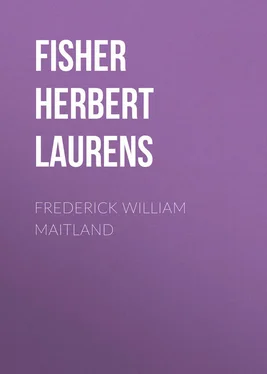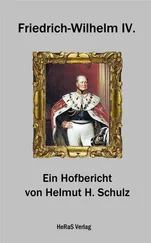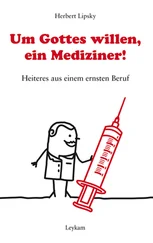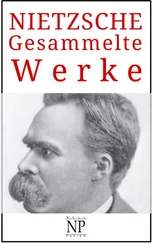Herbert Fisher - Frederick William Maitland
Здесь есть возможность читать онлайн «Herbert Fisher - Frederick William Maitland» — ознакомительный отрывок электронной книги совершенно бесплатно, а после прочтения отрывка купить полную версию. В некоторых случаях можно слушать аудио, скачать через торрент в формате fb2 и присутствует краткое содержание. Жанр: foreign_antique, foreign_prose, на английском языке. Описание произведения, (предисловие) а так же отзывы посетителей доступны на портале библиотеки ЛибКат.
- Название:Frederick William Maitland
- Автор:
- Жанр:
- Год:неизвестен
- ISBN:нет данных
- Рейтинг книги:4 / 5. Голосов: 1
-
Избранное:Добавить в избранное
- Отзывы:
-
Ваша оценка:
- 80
- 1
- 2
- 3
- 4
- 5
Frederick William Maitland: краткое содержание, описание и аннотация
Предлагаем к чтению аннотацию, описание, краткое содержание или предисловие (зависит от того, что написал сам автор книги «Frederick William Maitland»). Если вы не нашли необходимую информацию о книге — напишите в комментариях, мы постараемся отыскать её.
Frederick William Maitland — читать онлайн ознакомительный отрывок
Ниже представлен текст книги, разбитый по страницам. Система сохранения места последней прочитанной страницы, позволяет с удобством читать онлайн бесплатно книгу «Frederick William Maitland», без необходимости каждый раз заново искать на чём Вы остановились. Поставьте закладку, и сможете в любой момент перейти на страницу, на которой закончили чтение.
Интервал:
Закладка:
The Note Book was edited by Maitland in three substantial volumes and with the lavish care of an enthusiast. An elaborate argument, all the more cogent because it is not overstrained, raised Vinogradoff's hypothesis to the level of practical certainty. "The treatise is absolutely unique; the Note Book so far as we know is unique; these two unique books seem to have been put together within a very few years of each other, while yet the Statute of Merton was nova gracia ; Bracton's choice of authorities is peculiar, distinctive; the compiler of the Note Book made a very similar choice; he had, for instance, just six consecutive rolls of pleas coram rege ; Bracton had just the same six; two-fifths of Bracton's five hundred cases are in this book; every tenth case in this book is cited by Bracton; some of Bracton's most out of the way arguments are found in the margin of this book … the same phrases appear in the same contexts… Corbyn's case, Ralph Arundell's case are 'noted up' in the Note Book; they are 'noted up' also in the Digby MS of the treatise; with hardly an exception all the cases thus 'noted up' seem plainly to belong to Bracton's county… Lastly we find a strangely intimate agreement in error; the history of the ordinance about special bastardy and the 'Nolumus' of Merton is confused and perverted in the two books. Must we not say then that, until evidence be produced on the other side, Bracton is entitled to a judgment, a possessory judgment?" The penultimate argument in the pleading was characteristic of Maitland's ingenuity and also of a favourite pastime. He describes an imaginary walking tour through Devon and Cornwall and points out that ten cases noted up in the margin of the Note Book refer to persons and places which must have been well known to Bracton. "Many questions are solved by walking. Beati omnes qui ambulant. "
The appearance of the Note Book showed that Cambridge possessed a scholar who could edit a big medieval text with as sure a touch as Stubbs, and the book received a warm welcome from those who were entitled to judge of its merits. It had been a costly book to prepare and it was brought out at Maitland's own charges. In the introduction he took occasion to point out that in other countries important national records were apt to be published by national enterprise; and that in England the wealth of unpublished records was exceptional. "We have been embarrassed by our riches, our untold riches. The nation put its hand to the work and turned back faint-hearted. Foreigners print their records; we, it must be supposed, have too many records to be worth printing; so there they lie, these invaluable materials for the history of the English people, unread, unknown, almost untouched save by the makers of pedigrees." As an advertisement of these unknown treasures no more fortunate selection could have been made than this manuscript note book which could with so high a degree of probability be associated with the famous name of Bracton. But Maitland was not content with urging that the publication of our unknown legal records should not be left to depend upon the chance enthusiasm of isolated scholars; he demanded, as things necessary to the progress of his subject, a sound text of Bracton's treatise and a history of English Law from the thirteenth century.
In 1888 there was by reason of the death of Dr Birkbeck a vacancy in the Downing Chair of the Laws of England. Maitland stood and was elected. His Inaugural Lecture delivered in the Arts School on 13th October, 1888, was entitled, "Why the History of Law is not written." The reason was not a lack of material; on the contrary England possessed a series of records which "for continuity, catholicity, minute detail and authoritative value has – I believe that we may safely say it – no equal, no rival in the world," nor yet the difficulty of treating the material, for owing to the early centralization of justice, English history possessed a wonderful unity. Rather it was "the traditional isolation of English Law from every other study" and the fact that practising lawyers are required to know a little medieval law not as it was in the middle ages, but as interpreted by modern courts to suit modern facts. "A mixture of legal dogma and legal history is in general an unsatisfactory compound. I do not say that there are not judgments and text books which have achieved the difficult task of combining the results of deep historical research with luminous and accurate exposition of existing law – neither confounding the dogma nor perverting the history; but the task is difficult. The lawyer must be orthodox otherwise he is no lawyer; an orthodox history seems to me a contradiction in terms. If this truth is hidden from us by current phrases about 'historical methods of legal study,' that is another reason why the history of our law is unwritten. If we try to make history the handmaid of dogma she will soon cease to be history."
Maitland concluded with an appeal for workers in an untilled field, but with characteristic veracity held out no illusory hopes. "Perhaps," he wrote, "our imaginary student is not he that should come, not the great man for the great book. To be frank with him this is probable; great historians are at least as rare as great lawyers. But short of the very greatest work, there is good work to be done of many sorts and kinds, large provinces to be reclaimed from the waste, to be settled and cultivated for the use of man. Let him at least know that within a quarter of a mile of the chambers in which he sits lies the most glorious store of material for legal history that has ever been collected in one place and it is free to all like the air and the sunlight. At least he can copy, at least he can arrange, digest, make serviceable. Not a very splendid occupation and we cannot promise him much money or much fame… He may find his reward in the work itself: one cannot promise him even that; but the work ought to be done and the great man when he comes may fling a footnote of gratitude to those who have smoothed his way, who have saved his eyes and his time."
stock or marketable securities which undoubtedly are not the same things as the land and trade marks.'
Now it may occur to you that in their anxiety to avoid a confusion of the persons our courts fall into the opposite of error and divide the substance. But that is not so. The old things still exist and are owned, though new things 'transferable in the books of the company' have come into being. Also it seems possible that we may easily over-estimate the creative powers of lawyers and courts and legislators. Let us remember that these new things will be things for the man of business, things for the Stock Exchange. And in passing let us ask ourselves whether if these 'things' are not unreal, the personality of the company must needs be fictitious?
Fragment of a Lecture
As yet Maitland had not conceived himself as the author of that "History of English Law from the thirteenth century," the need for which he proclaimed to his Cambridge audience. A less extensive scheme had framed itself in his mind "some thoughts about a plan of campaign for the History of the Manor." The thoughts were communicated to Frederick Pollock and were not unfruitful, for they grew up seven years later into that massive History of English Law which is perhaps Maitland's most enduring title to fame; but of his learned projects in this seed-time and of some other concerns, grave and gay, a few scraps of correspondence may here most fittingly be adduced in evidence.
I am indeed glad that you are working at Bracton and settling the relation between the MSS. I wish that you would stay here and teach us something about our old books. Pollock is looking forward to your paper and I am diligently reading Bracton in order that I may understand it. I have written for Pollock a paper about seisin and had occasion to deal with a bit of Bracton which, as printed, is utter rubbish. I therefore looked at some of the MSS and found that the blunder was an old one. I shall not have occasion to say any more than that there are manuscripts which make good sense of the passage – but I have made a note 12 12 The note shows a knowledge of 18 Bracton MSS.
about the matter which I send to you thinking it just possible that you may care to see it, as it goes some little way (a very little way) to show that certain MSS are closely related.
Интервал:
Закладка:
Похожие книги на «Frederick William Maitland»
Представляем Вашему вниманию похожие книги на «Frederick William Maitland» списком для выбора. Мы отобрали схожую по названию и смыслу литературу в надежде предоставить читателям больше вариантов отыскать новые, интересные, ещё непрочитанные произведения.
Обсуждение, отзывы о книге «Frederick William Maitland» и просто собственные мнения читателей. Оставьте ваши комментарии, напишите, что Вы думаете о произведении, его смысле или главных героях. Укажите что конкретно понравилось, а что нет, и почему Вы так считаете.












